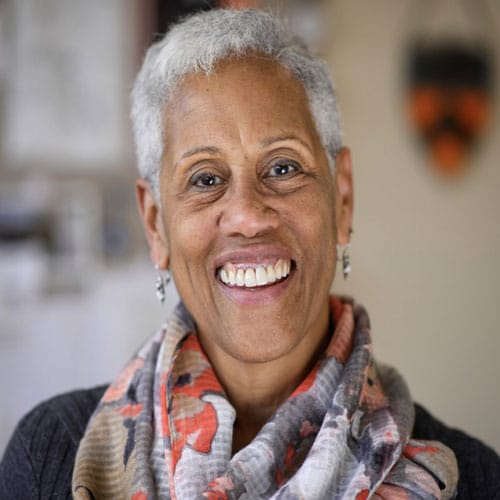Diversity, Equity, & Inclusion
What’s in a name? Everything! It is our identity, our heritage, and so much more. But in some cases, our name may be the one thing holding us back from a job, a promotion, or receiving an invitation to a networking event.
A person’s name connects to their identity and individuality. Using someone’s name correctly shows a respect for that individual. By remembering someone’s name and using it when you see them again, a person will feel influential and respected. Not remembering someone’s name or taking the time to ensure you are saying it correctly will make them feel slighted and very unimportant to you. A person’s name may activate social category information, which has been shown to lead to stereotyping and discrimination in various contexts.
This is so true for many of our frontline employees. Our industry’s frontline is a global representation from every continent and representing many cultures. Look around your organization: externally, you may appear to be very diverse, but are you inclusive internally? We should ask ourselves and our employees: do we really provide equitable opportunities and access to all our employees? Do our employees feel valued, do they believe they are an integral part of the organizational culture?
Ask many and the answer could be a resounding NO! One reason why—employees are and have been demoralized: when their manager forgets their name because it is complicated; mispronounces their name; does not acknowledge them directly because they can’t correctly pronounce their name; gives them a nickname because is easier to pronounce; or just continue to mispronounce their name regardless of how often they may correct us.
These individuals are the face of our organization, they do the work, yet they can be passed over for advancement simply based on their name. We claim we are diverse, but that is sometimes where it stops. We do not do the internal work to create an inclusive culture by learning more about an employee’s name.
Name discrimination is a real phenomenon, with researchers suggesting that this form of discrimination is present based on a name’s meaning, pronunciation, uniqueness, and gender or racial affiliation. Name bias is a discriminatory act that involves a negative judgment or preference for a person’s name. In recruitment, a candidate’s name affects the hiring decision through either conscious or unconscious bias motives. Considering a candidate’s name as a reason not to hire is a prejudiced action.
Perhaps you can relate to the following scenario:
You receive a resume for a vacant supervisory position and the name of the applicant is Jerome Johnson. Let’s be honest, what is your first mental image of the candidate? Will you continue reviewing the resume, will you consider this person for the position? If we are brutally honest with ourselves, 90% of us visualized a person of African American descent. Based on our mental image of the applicant we may just slide the resume to the “no” pile. However, the truth in this situation is that Jerome Johnson is white.
Jerome candidly shares that he often does not get opportunities for interviews for positions that he is more than qualified for simply based on his name. He explained that growing up teachers, parents, and elders often looked at him in disbelief when he shared his name. He further shared how he repeatedly applied for an entry level position, only to be told the company never received his application. During his candid conversation with me, he told me that not long ago, during an interview for a management position, the recruiter came out to the waiting room where there were other applicants waiting, asked for “Jerome Johnson” then proceeded to look only at the men of color in the room. After a second call from the recruiter he said, “I am Jerome Johnson.” He chuckles, remembering that the look on the recruiter’s face was priceless. At the end of the interview the recruiter apologized for looking shocked, saying, “You do not look like the person I was expecting.”
Over the years, Jerome realized he was experiencing discrimination solely based on his name, and he saw that being white he was provided privileges people of color do not get to experience.
We need to be honest with ourselves because throughout our careers, most of us have been guilty of unconscious bias in the form of a simple name microaggression—a subtle, often unintentional, form of prejudice that negatively targets a marginalized group of people. Many will tell you racism does not exist in today’s society simply based on someone’s name; I am here to share it does!
Let’s really begin to practice what we preach. The next time you are hiring or looking to promote from within, have someone on the team or an outside recruiter remove applicant’s names. Review the entire pool of eligible applicants based on their merit, not their name. You will be on your way to not only creating an inclusive review, but an equitable one too.
Kim E. Jackson, CAPP, is Principal of KEJ Associates LLC and a former Chair of the IPMI Board of Directors.
-
This author does not have any more posts.

A Closed Mouth Does Not Get Fed
Speaking Up on Allyship

The Complexities of Identity
The Vitality of Discovering your own Intersectionality

Age Is Only a Number
To create equity and inclusion for all age groups, it’s






